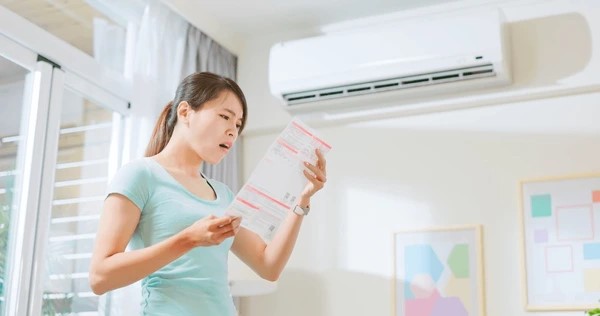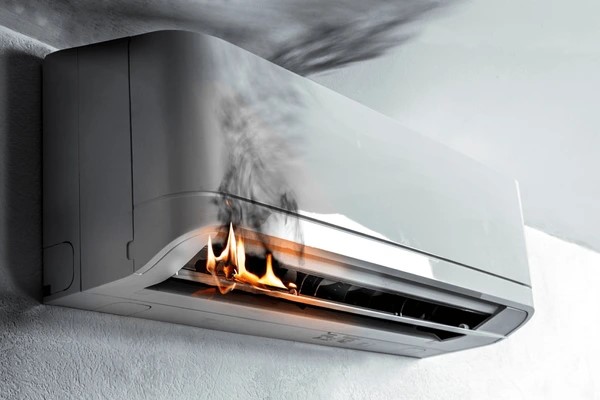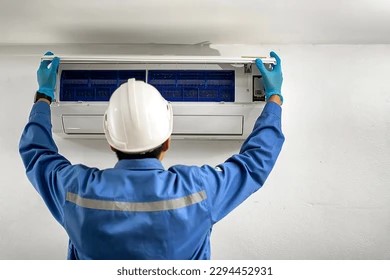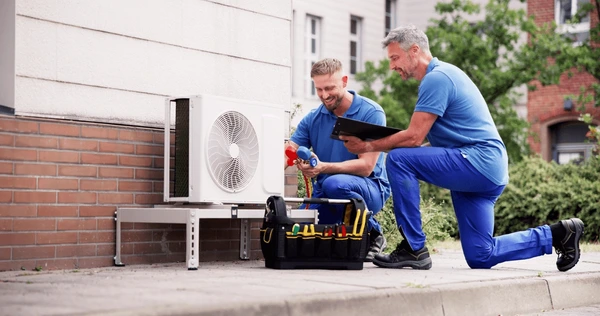Introduction: Does Homeowners Insurance Cover Air Conditioner Repair?
Amidst the sweltering summer, an air conditioner is often the be-all and end-all of comfort, and having one in the house is tantamount to a necessity. But what if your best friend has a sudden failure? Many homeowners may be curious whether their insurance will assist with repair or replacement expenses for their air conditioner.
The answer isn’t necessarily simple — whether you’ll be covered depends on the terms of your policy, the cause of the Damage, and whether the failure results from an insurable event. This article is designed to help you navigate the finer details of homeowners’ insurance when getting partial or total insurance coverage for AC repair or replacement.
What Is Homeowners Insurance and What Does It Cover?
So what’s homeowner’s insurance? Homeowners insurance, also known as home insurance, is a form of property insurance that helps protect what’s likely your most valuable asset, your home, and the things within it, from an array of risks like fire, theft, vandalism, Damage from snow or ice, and more. Most standard policies cover the home’s structure and the property it contains. However, those policies may have caveats regarding appliances and systems like air conditioners. Knowing how far your homeowner’s insurance covers and where it stops is a key indicator of whether your air conditioner repair will be covered.
Is Homeowners’ Insurance Coverage Different for Appliances?
As for appliances, homeowners’ insurance generally only covers them in some instances. It is essential to distinguish between Damage from outside causes, such as storms or fire, and normal wear and tear or lack of maintenance. Coverage is generally triggered when the Damage occurs suddenly and accidentally, resulting from an insured peril. If your air conditioner is damaged in a fire, your home insurance will probably pay the repair or replacement cost. When the system fails because of age or neglect, though, it is usually not covered.
What Home Insurance Covers for HVAC Systems

Heating, ventilation, and air conditioning (HVAC) systems are vital to ensuring comfort in a home. Although homeowners’ insurance probably wouldn’t cover total maintenance and repairs to HVAC systems, some occurrences, such as fire, vandalism, or storm damage, may initiate a claim. Also, if you have HVAC systems that are a part of the home itself, you may have those fall under the dwelling portion of your insurance policy with your provider.
Is It Included in My Home Insurance?
Homeowners’ insurance typically covers air conditioning appliances. While your policy may cover Damage from fire, lightning, or other perils listed on your policy, it’s unlikely you’re covered for repairs due to factors such as wear and tear, mechanical issues, or lack of maintenance. Understanding the fine print of your policy can help ensure you aren’t surprised and left empty-handed after filing a claim.
When air conditioning units are covered by home insurance
Home insurance may cover air conditioners if a covered peril damages them. This might include Damage due to accidental fire, lightning, smoke, vandalism, or a specific storm (like hail or tornadoes). If the AC is harmed due to such incidents and the resultant Damage is covered per the policy terms, the repair or replacement cost will be covered.
What is the Difference Between Home Insurance and Warranty?
Home insurance is often mistaken for warranties, which protect homes in other ways. A home warranty will usually cover particular household appliances like air conditioners and pay for repairing mechanical breakdowns or wear and tear. By contrast, homeowners’ insurance covers the loss or Damage caused by sudden, accidental events—fires, storms, and the like. If your air conditioner runs inefficiently due to old age or lack of maintenance, a home warranty might be better than homeowners’ insurance.
Common Causes For Air Conditioning Unit Damage That Are Covered By Home Insurance
Common causes of air conditioner damage that homeowners’ insurance might cover . Some common reasons why your system might give out and could be covered under your homeowners insurance if you have added equipment breakdown coverage, are:
· Fire damage
· Damage due to smoke or soot
· Lightning strikes
∙ Loss insured by any other property insurance.
·Covered storm event damage: hail, etc.
Such events are generally insurable under standard homeowners coverage, but you should check with your insurance agent to see if there are limitations on certain events.
How to Know if Your Air Conditioner is Included in Your Policy

To determine if your homeowner’s insurance policy covers your air conditioning unit, refer to your insurance declaration page. You can also ask your insurance agent about appliance coverage details and any exclusions that might apply to HVAC systems. Your agent can explain the coverage and help you understand any riders or add-ons you may have.
What to Do Before You File a Claim for Air Conditioner Damage
Before submitting a claim to insurance, do the following for a smooth claim process:
· Photograph and write descriptions of the Damage.
· Look for an exceptions policy or any air conditioner specifics in your policy.
· Obtain a quote for repair or replacement from a licensed HVAC contractor.
· Do not file for unnecessary repairs, which affect the claims process.
How to Document Air Conditioner Damage for Insurance Claims
Documentation is key to a successful claim. Provide clear photos of your broken-down air conditioner showing the unit’s damaged part(s). Note the Damage: Whether it was caused by an accident or a covered peril — in the case of storms, for example, you will want to take detailed notes as to the cause of the Damage. Be sure to provide any estimates or repair bills – if you had to pay an HVAC professional, so much the better.
Getting To Grips With Your Policy: Policy Wording
The terms of homeowners’ insurance policies are complex. To know exactly what you’re insured for, read your own policy. Look at sections on exclusions, like wear and tear, and protection for certain appliances. When in doubt, clarify with your insurer so you don’t end up paying the cost in case you need to file a claim.
What HVAC Insurance Covers, and What It Doesn’t
Homeowners’ insurance partially covers HVAC systems. Homeowners’ insurance policies may provide limited coverage for HVAC systems, but most exclude coverage for certain types of Damage. For example, if your air conditioner breaks down because you didn’t maintain it or it’s just too old, that will likely be excluded. However, some accidental damage from an external source, like a storm or a power surge, may be covered. Always check the terms specifically included in your policy’s HVAC coverage.
Air Conditioner Breakdown vs. Damage: What’s the Distinction?

We’re about to tackle several of them, starting with the air conditioning: No air conditioning. Though many home insurance policies include heating and cooling systems coverage, your air conditioner issues are rarely covered, as they usually result from mechanical failure or wear and tear. If the Damage to your air conditioner is the result of a fire or a flood, by comparison, you’re more likely to be covered. It’s important to differentiate between these two issues when making a claim.
How to Prove Accidental Damage to Your A/C
To show that a covered occurrence damaged your air conditioning, collect information such as photographs of the Damage, estimates for repairs, and statements from experts who surveyed the Damage. The better and more complete the documentation, the more likely your claim will be accepted.
Natural Disasters and Air Conditioner Coverage
Severe weather, such as hurricanes, tornadoes, and hailstorms, can also damage a home’s air conditioning. Your air conditioner may or may not be covered, depending on the nature of the disaster and your policy. However, most policies have specific language around these events, so it’s important to know whether your air conditioner is covered under your natural disaster coverage.
How to File an AC Unit Damage Claim Step by Step
Contact your insurance company and file a claim for the Damage.
Give them specific documentation of the Damage.
If necessary, set up an adjuster inspection.
Wait for your claim to be accepted or declined.
If accepted, the insurer will pay to repair or replace your property.
What Will You Need to File a Claim?
Below is what you will need to claim for an air conditioning system that is Not Cooling:-
• Your policy number and details of your claim
· Photos of the Damage
· Detailed repair estimate
Details of Causes of Damage
How to Get Hold of Your Insurance Company for an Air Conditioner Claim
Call or submit a claim through your insurance company’s website. Have your policy number on hand and a summary of what happened. Certain insurers provide 24/7 claims service; some may require you to fill out forms or provide documentation.
How Long Does it Take to Claim Insurance for an Air Conditioner?
How long it takes to process your claim will depend much on how severe your Damage is and the demand your insurer is facing. In most cases, an air conditioner damage claim can last a few days up to several weeks. One year with no agency: Following a 6-12 month period, in the first instance, the insurer will either make payment or deny the claim based on the second opinion provided by the claimant. Then, payment or repair will take place.
When Will I Get Paid for My AC Fix?
Once your claim is accepted, the insurance company will either pay for the repairs or work with an approved contractor to start them. Receiving payment should take a few weeks, although this can differ according to your insurer’s processes and procedures.
What If Your Air Conditioner Is Not Covered?
If your AC claim is denied, you should receive an explanation of why the claim didn’t go through. It is common to be denied coverage for one of the following: Failure to satisfy the policy terms, the exclusion, or both. You may dispute the decision, submit more information, or seek clarification from your insurer.
What to Do if Your Air Conditioner Claim Is Denied
If your request is refused, don’t just roll over. You can appeal by:
· Understanding the denial letter for a more tangible reason.
· Submitting new evidence or documents.
· Getting help from an adjuster or attorney.
Keep Air Conditioners from Damaging to Avoid Claims Down the Road
Avoiding Damage to your air conditioner can prevent expensive repairs and insurance claims. Consistently maintaining your system, cleaning the filters, and scheduling professional check-ups can help prolong the life of your system and reduce the risk of breakdowns.
What Riders or Add-Ons Are Available for Air Conditioner Coverage?

Some homeowners’ insurance policies also include air conditioning add-ons or riders. These add-ons can offer broader coverage, such as against mechanical breakdowns. Remember to check with your insurance company when you’re shopping around.
The Importance of Air Conditioner Maintenance History for your claim
Good maintenance records can help prove your point and show that you’ve done your part to take care of the air conditioner. If companies see that you’ve neglected maintenance records, they may use that as a reason to refuse a claim.
How Your Deductible Impacts the Payout for Your Air Conditioner Claim
Your deductible is the sum you pay out-of-pocket toward a claim before your insurer pays the rest. Higher deductibles typically lead to lower premiums, but they could mean a smaller payout for your air conditioner repair. Here’s how the insurance deductible affects the real cost of repairs when you make a claim.
Should You Call the Pros for Air Conditioning Repairs?
In most instances, you must hire a professional, licensed air conditioning contractor for insurance claims and repairs. Carriers want repairs completed by trained technicians for quality assurance and to verify the cost.
How to Select the Best HVAC Contractor for Insurance Claim Repairs
If you are selecting an HVAC contractor to repair the Damage, choose someone who is licensed, insured, and experienced in dealing with insurance claims. Seek contractors who directly handle the repair process with insurers to expedite repairs.
What to Do If Your Insurance Won’t Pay for Air Conditioner Repairs
If your insurance doesn’t pay for your air conditioner repairs, consider the alternatives below: getting help from a home warranty, applying for financing, or signing up for manufacturer-specific repair programs.
Considering Other Ways to Have AC Repairs
If insurance refuses to cover repairs, explore alternatives such as government assistance programs, doing the repairs yourself, or getting quotes from independent contractors. These options can help reduce the amount of money patients have to pay from their own pockets.
Is an Extended Warranty & Protection Plan Worth It for an Air Conditioner?
An extended warranty can help when your air conditioner exceeds its original warranty. This warranty generally covers unforeseen mechanical breakdowns and failures not covered by homeowners’ insurance.
Ways to Save Money on Air Conditioner Repair and Maintenance
Keeping your air conditioner well-maintained can also help avoid expensive repairs. Even relatively simple, proactive steps such as keeping air filters clean, refrigerant levels in check, and regular professional check-ins can add years to the life of your unit and keep repair costs down.
How Regular Preventive Servicing Can Stretch the Life of Your Air Conditioner
Preventive maintenance can help your AC live longer, decrease the chances of breaking down, and run efficiently. Regular maintenance also minimizes the likelihood of accidents that could lead to insurance policy payouts.
Understanding Why Your Air Conditioner Should Be Serviced Regularly

Regular preventative maintenance is the best way to ensure trouble-free operation and peak performance from your air conditioner. Professionals can find problems in their early stages—when they are easiest and least expensive to fix—so you can repair them yourself and avoid the need for insurance claims.
How to Add More Comprehensive HVAC Coverage to Your Home Insurance Coverage
If your current policy does not insure your HVAC system, now would be a good time to purchase an upgraded policy. Talk to your insurance carrier about increasing your coverage to prepare you for any HVAC-related damage.
Conclusion: Is It Worth It to Depend On Home Insurance for Air Conditioner Repair and Replacement? Insurance?
Homeowners’ insurance may assist with air conditioner repairs after certain types of Damage, but using it as your go-to repair solution may not be the most cost-effective solution. Keeping a good warranty or routine preventative maintenance can frequently help by protecting you from both small and big troubles.

FAQ About how to get Home Insurance to pay for air conditioner repairs
Does Homeowners Insurance Cover Air Conditioners?
Whether homeowners’ insurance covers air conditioners depends on the cause of the Damage, i.e., a covered peril (things like fire, lightning, and certain types of storms). It does not protect against normal wear and tear or mechanical failure.
What kind of Damage is covered by homeowners’ insurance for air conditioners?
Homeowners’ insurance can cover air conditioners if the Damage is due to an accidental event, such as a fire, lightning strike, hailstorm, or vandalism. Catastrophic loss is more likely to be insured.
Aren’t homeowners’ insurance and a home warranty the same thing?
Homeowners insurance covers Damage caused by unexpected external events (like a fire or storm), while a home warranty typically covers systems—and appliance-related breakdowns due to use over time, such as mechanical issues. A home warranty is a better fit for air conditioner repairs due to age or neglect.
How do I know if homeowners’ insurance covers the air conditioner?
To ascertain whether the air conditioning unit in your home is covered, look to your homeowner’s insurance policy and pay particular attention to any sections that outline appliance coverage, exclusions, and coverage for heating, ventilation, and cooling systems. You may also want to call your insurance company to be sure.
Can I claim an air conditioner breakdown on my homeowner’s insurance?
No, home insurance doesn’t usually pay for breakdowns due to mechanical Damage or regular wear and tear. However, if the failure resulted from a covered peril, such as a lightning power surge, there could be reimbursement potential.
What steps should I take to file a claim when my air conditioner is damaged?
Before submitting a claim, document the Damage with images and a written account of what occurred; also, obtain an estimated cost for repair or replacement from a licensed HVAC professional. Review your policy to make sure the Damage is covered.
How long does it take for insurance to pay for an air conditioner?
How long it takes the insurance company to process a claim can depend on the amount of the Damage and the company’s protocols. Normally, the insurer has a few days to a couple of weeks to review the claim and decide.
What if my air conditioner claim is denied?
If your claim is denied, the insurer explains why. Common reasons for denial include the Damage not being included in your policy or the problem resulting from deferred maintenance. You can appeal the decision or submit more evidence to substantiate your claim.
Do I have to have an air conditioning professional fix my air conditioner for insurance?
Yes, you will likely need an HVAC contractor since most insurance companies will require you to show proof that your unit was professionally repaired to cover a claim.
Can I get my air conditioner covered if homeowners’ insurance doesn’t?
Yes, a home warranty is intended to cover repairs or replacements for things like malfunctioning air conditioners that fail due to normal wear and tear. Consider a warranty if your homeowner’s insurance doesn’t cover the repair.
How do I prevent air conditioner damage that could cause a claim?
Preventative maintenance is the best way to avoid any Damage. Change filters regularly, monitor refrigerant amounts, and schedule an annual service call from a licensed technician to ensure your AC is running efficiently and will not crash in the heat of summer.
Will my deductible change how much I get reimbursed for an air conditioner repair?
Yes, your deductible is what you have to pay before your insurance kicks in and covers the rest. Higher deductibles generally correspond to lower premiums, but you must pay more out of pocket for repairs.
Any other riders or coverage options for air conditioners on my homeowners policy?
Some insurers offer optional add-ons or riders with broader appliance protection, including air conditioners. These riders could protect against mechanical breakdown or add extra protection for HVAC systems. Contact your insurance provider for more information.
What if I won’t be able to claim the air conditioner repairs on my homeowner’s insurance?
If you don’t have homeowners insurance covering repairs, you could look into a home warranty, financing, or whether the manufacturer offers a specific program to repair it, making it more affordable.
Should I get an extended warranty on an air conditioner?
An extended warranty might protect air conditioners once the manufacturer’s original warranty has run out by covering events such as mechanical failure that aren’t generally covered by homeowners’ insurance. It could be a good choice if you need added protection for your HVAC system.
How can I lower the cost of air conditioning repair?
Preventive maintenance is the most powerful tool in your arsenal for minimizing repair expenses. Just keeping it clean and maintaining good filters can increase the life of your air conditioner and decrease expensive repairs or claims.
Why is it important to have my air conditioner serviced regularly?
Regular service helps your air conditioner run efficiently by correcting minor problems before they become significant problems. It may also help prolong the life of your unit and make it more energy efficient, and it can reduce your chances of having a repair claim in the future.
Can I add to my homeowner’s insurance policy to get better coverage for HVAC systems?
Yes, some insurers will let you upgrade your policy to add more robust HVAC coverage and protections for air conditioners. Discuss any additional upgrades and riders that may be available with your insurance agent.
My air conditioner breaks after a natural disaster?
Another factor is uncontrollable natural events that can wreak havoc on HVACs , such as hurricanes, tornadoes, and hailstorms. In cases where the Damage is caused by a covered event within your policy, like a storm or flooding, your homeowners insurance could assist in covering repair or replacement costs.
Do I have any maintenance records that might support my insurance claim for air conditioner repairs?
Yes, but only if you have detailed records of regular maintenance. These records can help establish that you took good care of your air conditioner. Insurance companies might be more inclined to accept your claim if you have kept up with servicing.

